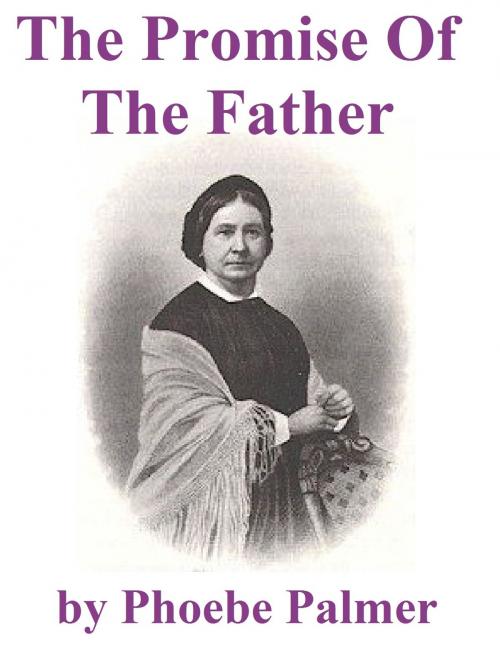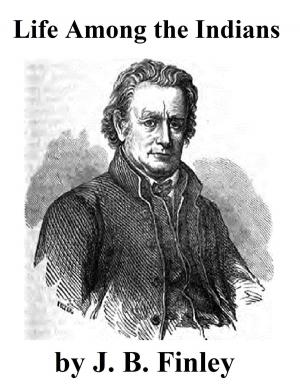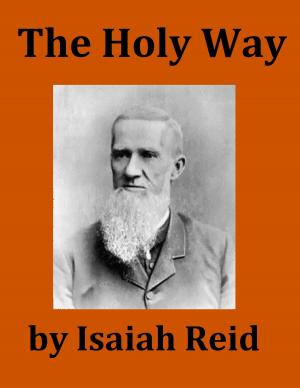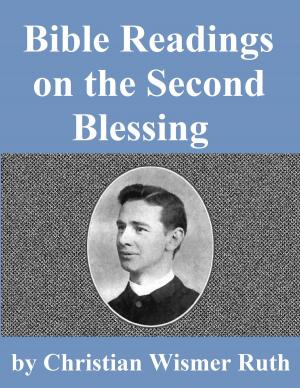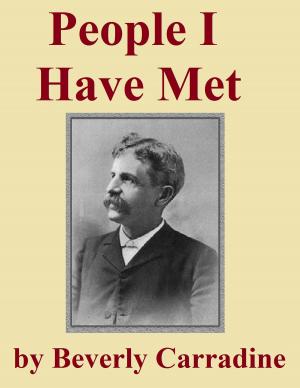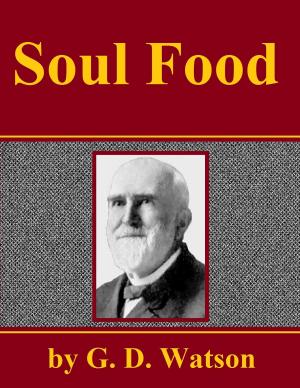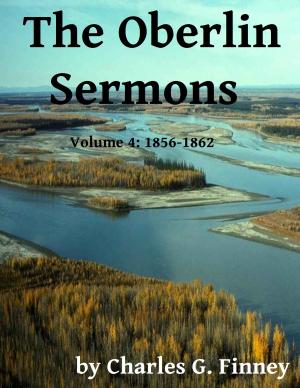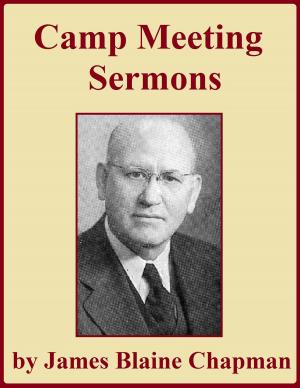The Promise of the Father
A Neglected Specialty Of The Last Days
Nonfiction, Religion & Spirituality, Christianity, Denominations, Methodism, Education, Christian Life| Author: | Phoebe Palmer | ISBN: | 1230000305682 |
| Publisher: | Jawbone Digital | Publication: | February 24, 2015 |
| Imprint: | Language: | English |
| Author: | Phoebe Palmer |
| ISBN: | 1230000305682 |
| Publisher: | Jawbone Digital |
| Publication: | February 24, 2015 |
| Imprint: | |
| Language: | English |
From the Preface:
Our theme is novel, and addresses itself to all Christians, irrespective of sect. We are disposed to think it the most important that can, in these last days, claim the attention of the religious world. We may seem to overrate our subject, but if the reader will suspend judgment till he has prayerfully weighed the doctrines of this volume in the balances of the sanctuary, we shall be satisfied. Many years have passed since the magnitude of this theme has been pressing upon us. We have repeatedly been solicited, in behalf of common Christianity, to give our views to the public, but have declined, and, in turn, urged others, whom we deemed more competent than ourselves, to undertake the work. We were at last unexpectedly constrained to present what we believe to be truth on this subject, by the following circumstance:–
At a large social meeting, where ministers and people of various denominations were assembled, a lady of strong and influential piety, known to some in that circle to be an individual of more than ordinary mental and cultivated ability, rose to speak. The privilege of being placed in circumstances where she might open her lips in testimony for Jesus before her brethren, was of rare occurrence. Her testimony was most memorably affecting. But we must pause only to glance at its special indices, which were about thus: She had, with unutterable longings, been seeking that the Promise of the Father to his daughters of the last days, might be fulfilled in her experience. As the Marys and "other women" assembled with their brethren on the memorable morning which ushered in the dispensation of the Spirit, she had resolved that she would obey the command of her risen Lord, and wait in unyielding faith for the promised tongue of fire. But, lo, the strange and affecting dilemma in which, through church ordainments, she had been placed! In coming to the decision that she would, in unyielding, humble prayer and faith, wait for the promised baptism of fire, she drew nigh unto God; as ever the day of the Lord is near in the valley of decision. And now the Spirit, whose grace she supplicated, drew nigh unto her, and in unmistakable terms assured her if she would have the promised grace, she must comply with the obvious conditions. When Mary and the other women disciples received the tongue of fire in answer to the Promise of the Father, they at once used the gift and spake as the Spirit gave utterance. She now felt that she had entered, as it Were, in audience with the Deity. The Holy Spirit was demanding of her acquiescence with the condition, whether she would be willing to pass through the crucifying process of speaking, as the Spirit gave utterance, in the social assembly, though those utterances were in danger of being withstood by the church. And here, though intellectually and piously strong, she stood and wept over the dilemma. And what a dilemma! The will of the church and the will of Christ in conflict! We need not say, that the entire of that waiting company were in sympathy with the scene. What could be done? We knew that not only the church to which this lady belonged, but many other churches, in like manner would withstand the utterance of a Spirit-baptized Mary in the church assembly, though they had seen the tongue of fire descend upon her.
Though in love with church order, we concluded where church ordainments conflict with the manifest order of the Head of the Church, it were better to stand up with TRUTH. We therefore stood up, and gave what were our convictions of the mind of the Spirit in accordance with the lively oracles, believing that where Church order is at variance with divine order, it were better to obey God than man.
Our defense, though humble, seemed to be received with favor. An elder of the church to which the lady whose affecting dilemma we have stated, belonged, rose and made a motion to the effect that our views be embodied in writing and given to the public. A congregational minister seconded the motion, and by the unanimous concurrence of the meeting, we were pressed to a service which we had long desired that a more able hand might perform. We believe the error contemplated lies at the foundation of wrong-doing, immensely detrimental to the upbuilding of Zion in well nigh all religious bodies.
About the author:
Phoebe Palmer (1807-1874) is often referred to as the mother of the holiness movement. She ministered all over the world. She came from a deep Christian heritage, and her parents received fellowship in the Methodist church from John Wesley himself. No doubt, this had an impact on her spiritual life, despite many sufferings that she had to endure, to include the loss of three children.
She spent the greater majority of her life in the United States and Canada, and was instrumental in the Third Great Awakening in 1857.
She authored many books, including 'Incidental Illustrations of the Economy of Salvation; Its Doctrines and Duties,' 'Entire Devotion to God,' 'The Way of Holiness, with Notes by the Way,' 'Faith and Its Effects,' 'The Promise of the Father,' and 'Four Years in the Old World.'
From the Preface:
Our theme is novel, and addresses itself to all Christians, irrespective of sect. We are disposed to think it the most important that can, in these last days, claim the attention of the religious world. We may seem to overrate our subject, but if the reader will suspend judgment till he has prayerfully weighed the doctrines of this volume in the balances of the sanctuary, we shall be satisfied. Many years have passed since the magnitude of this theme has been pressing upon us. We have repeatedly been solicited, in behalf of common Christianity, to give our views to the public, but have declined, and, in turn, urged others, whom we deemed more competent than ourselves, to undertake the work. We were at last unexpectedly constrained to present what we believe to be truth on this subject, by the following circumstance:–
At a large social meeting, where ministers and people of various denominations were assembled, a lady of strong and influential piety, known to some in that circle to be an individual of more than ordinary mental and cultivated ability, rose to speak. The privilege of being placed in circumstances where she might open her lips in testimony for Jesus before her brethren, was of rare occurrence. Her testimony was most memorably affecting. But we must pause only to glance at its special indices, which were about thus: She had, with unutterable longings, been seeking that the Promise of the Father to his daughters of the last days, might be fulfilled in her experience. As the Marys and "other women" assembled with their brethren on the memorable morning which ushered in the dispensation of the Spirit, she had resolved that she would obey the command of her risen Lord, and wait in unyielding faith for the promised tongue of fire. But, lo, the strange and affecting dilemma in which, through church ordainments, she had been placed! In coming to the decision that she would, in unyielding, humble prayer and faith, wait for the promised baptism of fire, she drew nigh unto God; as ever the day of the Lord is near in the valley of decision. And now the Spirit, whose grace she supplicated, drew nigh unto her, and in unmistakable terms assured her if she would have the promised grace, she must comply with the obvious conditions. When Mary and the other women disciples received the tongue of fire in answer to the Promise of the Father, they at once used the gift and spake as the Spirit gave utterance. She now felt that she had entered, as it Were, in audience with the Deity. The Holy Spirit was demanding of her acquiescence with the condition, whether she would be willing to pass through the crucifying process of speaking, as the Spirit gave utterance, in the social assembly, though those utterances were in danger of being withstood by the church. And here, though intellectually and piously strong, she stood and wept over the dilemma. And what a dilemma! The will of the church and the will of Christ in conflict! We need not say, that the entire of that waiting company were in sympathy with the scene. What could be done? We knew that not only the church to which this lady belonged, but many other churches, in like manner would withstand the utterance of a Spirit-baptized Mary in the church assembly, though they had seen the tongue of fire descend upon her.
Though in love with church order, we concluded where church ordainments conflict with the manifest order of the Head of the Church, it were better to stand up with TRUTH. We therefore stood up, and gave what were our convictions of the mind of the Spirit in accordance with the lively oracles, believing that where Church order is at variance with divine order, it were better to obey God than man.
Our defense, though humble, seemed to be received with favor. An elder of the church to which the lady whose affecting dilemma we have stated, belonged, rose and made a motion to the effect that our views be embodied in writing and given to the public. A congregational minister seconded the motion, and by the unanimous concurrence of the meeting, we were pressed to a service which we had long desired that a more able hand might perform. We believe the error contemplated lies at the foundation of wrong-doing, immensely detrimental to the upbuilding of Zion in well nigh all religious bodies.
About the author:
Phoebe Palmer (1807-1874) is often referred to as the mother of the holiness movement. She ministered all over the world. She came from a deep Christian heritage, and her parents received fellowship in the Methodist church from John Wesley himself. No doubt, this had an impact on her spiritual life, despite many sufferings that she had to endure, to include the loss of three children.
She spent the greater majority of her life in the United States and Canada, and was instrumental in the Third Great Awakening in 1857.
She authored many books, including 'Incidental Illustrations of the Economy of Salvation; Its Doctrines and Duties,' 'Entire Devotion to God,' 'The Way of Holiness, with Notes by the Way,' 'Faith and Its Effects,' 'The Promise of the Father,' and 'Four Years in the Old World.'
